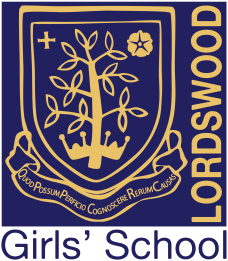Exam board
Edexcel
Specification
Click here
What is the qualification?
One full GCSE awarded at grades 9 – 1.
What will students be doing on the course? How will it be structured?
Throughout this two year course students will complete a variety of listening, speaking, reading, writing and translation activities. The course is split up into the following five themes:
Identity and culture
Local area, holidays, and travel
School
Future aspirations, study, and work
International and global dimensions
Assessment
Students will complete quick quizzes every 2-3 weeks. These quizzes assess students’ knowledge and application of grammar and vocabulary.
The results are shared with students and noted on the progress tracking sheet in their exercise books, at the beginning of each module.
Students will know how they achieved in a range of skills throughout each module.
Students will complete activities in and outside of class to develop examination strategies and techniques.
For homework students must complete reflective study after each lesson.
They will also be asked to learn vocabulary regularly, and complete a range of tasks to extend listening, reading, speaking, writing and translation skills. Students may have to research new topics, take part in creative tasks or complete reinforcement grammar activities.
Students will be expected to join Google Classroom, which will be set up by the class teacher. Resources will be uploaded onto the Classroom and tasks may be set through this medium.
Students will be given login details to Active Learn and Language Nut – online learning resources that develop listening, speaking, reading, writing and translation skills. Students may also be set work/homework on these platforms.
Students will sit the following four examinations at the end of Year 11:
Paper 1: Listening and understanding in French (25% of final grade)
Foundation tier: 35 minutes including 5 minutes reading time.
Higher tier: 45 minutes including 5 minutes reading time.
Paper 2: Speaking in French (25% of final grade)
Foundation tier: 7–9 minutes plus 12 minutes preparation time.
Higher tier: 10–12 minutes plus 12 minutes preparation time.
Paper 3:Reading and understanding in French (25% of final grade)
Foundation tier: 45 minutes.
Higher tier: 1 hour.
Paper 4: Writing in French (25% of final grade)
Foundation tier: 1 hour 10 minutes.
Higher tier: 1 hour 20 minutes.
Year 10
Summer Term: Mock examinations
Year 11
Autumn Term: Mock examinations
Summer Term:
April/May:
Paper 3 Speaking in French
May/June:
Paper 1 Listening and understanding in French examination;
Paper 3 Reading and understanding in French examination
Paper 4 Writing in French examination
What skills do students need to develop to be successful at this course?
In order to be successful in this course students will need to develop their level of proficiency in listening, speaking, reading, writing and translation.
In addition, students will need to develop the following transferable skills:
Cognitive skills:
Systems thinking – decision making and reasoning.
Critical thinking – analysing, synthesising and reasoning skills.
Interpersonal skills:
Communication – active listening, oral communication, written communication, assertive communication and non-verbal communication.
Adaptability – ability and willingness to cope with the unpredictable and communication styles and cultures.
Self-management and self-development – ability to work autonomously, be self-motivating and self-monitoring, willing and able to acquire new information and skills.
What could this qualification be used for?
In recent years, higher education institutions and employers have consistently flagged the need for students to develop a range of transferable skills to enable them to respond with confidence to the demands of undergraduate study and the world of work.
Entrance to many further education institutions is often dependent on students possessing a GCSE in a MFL. There are a wide range of careers on offer to those who have studied languages from teaching, journalism and business to politics, accounting and law.
